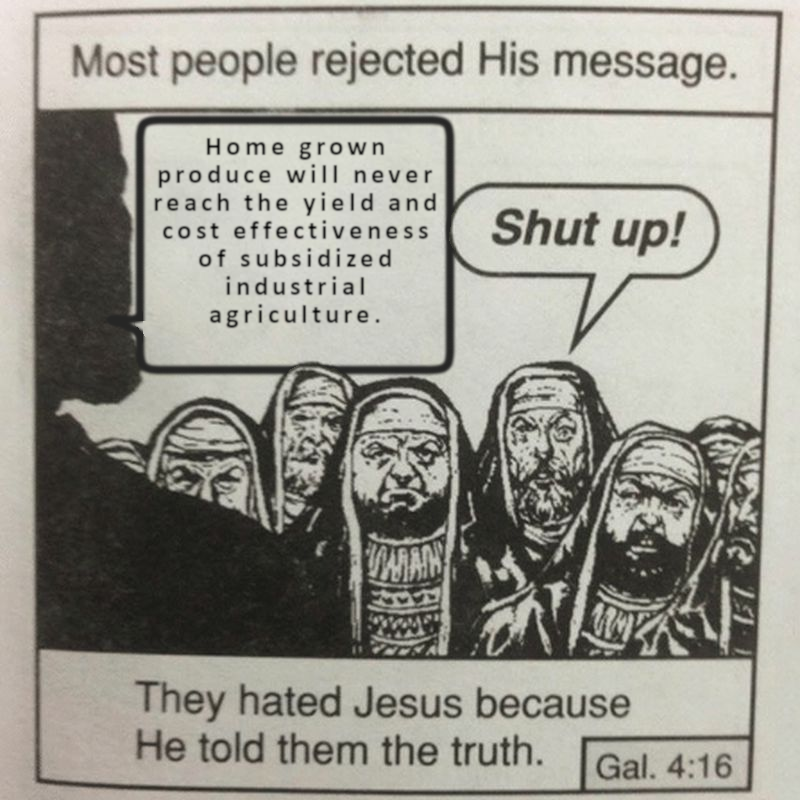this post was submitted on 13 May 2024
810 points (91.9% liked)
Science Memes
10356 readers
2192 users here now
Welcome to c/science_memes @ Mander.xyz!
A place for majestic STEMLORD peacocking, as well as memes about the realities of working in a lab.

Rules
- Don't throw mud. Behave like an intellectual and remember the human.
- Keep it rooted (on topic).
- No spam.
- Infographics welcome, get schooled.
Research Committee
Other Mander Communities
Science and Research
Biology and Life Sciences
- !abiogenesis@mander.xyz
- !animal-behavior@mander.xyz
- !anthropology@mander.xyz
- !arachnology@mander.xyz
- !balconygardening@slrpnk.net
- !biodiversity@mander.xyz
- !biology@mander.xyz
- !biophysics@mander.xyz
- !botany@mander.xyz
- !ecology@mander.xyz
- !entomology@mander.xyz
- !fermentation@mander.xyz
- !herpetology@mander.xyz
- !houseplants@mander.xyz
- !medicine@mander.xyz
- !microscopy@mander.xyz
- !mycology@mander.xyz
- !nudibranchs@mander.xyz
- !nutrition@mander.xyz
- !palaeoecology@mander.xyz
- !palaeontology@mander.xyz
- !photosynthesis@mander.xyz
- !plantid@mander.xyz
- !plants@mander.xyz
- !reptiles and amphibians@mander.xyz
Physical Sciences
- !astronomy@mander.xyz
- !chemistry@mander.xyz
- !earthscience@mander.xyz
- !geography@mander.xyz
- !geospatial@mander.xyz
- !nuclear@mander.xyz
- !physics@mander.xyz
- !quantum-computing@mander.xyz
- !spectroscopy@mander.xyz
Humanities and Social Sciences
Practical and Applied Sciences
- !exercise-and sports-science@mander.xyz
- !gardening@mander.xyz
- !self sufficiency@mander.xyz
- !soilscience@slrpnk.net
- !terrariums@mander.xyz
- !timelapse@mander.xyz
Memes
Miscellaneous
founded 2 years ago
MODERATORS
you are viewing a single comment's thread
view the rest of the comments
view the rest of the comments

I'm pretty sure that's what Corporate Jesus would want people to believe. And to be honest, sometimes labeling something as "privileged" is just another way of reinforcing that thinking. It doesn't have to be that way.
A key component in this is a general misunderstanding of the value of your labor. When you garden you retain 100% of the value of your labor and your time is worth much more. When you work for others and then have to pay for food at a significant markup, you are losing a very large proportion of that labor. This is one of the central lies of capitalism that forces you into wage slavery and promotes false narratives like "growing food is most efficient on a huge scale". Efficient to whom? Not to you.
Edit: Another related example is the Berkeley Student Farm on the Oxford Tract and 6 other urban spaces. They are doing some amazing work and it's worth a few moments to read about them: https://www.studentfarms.berkeley.edu/
Please do! I am just starting with some gardening and haven't much experience yet.
Uh oh.
Well I'll just mention one thing... just. one. thing. Ok, no, let me do my top beginner mistakes, which seem to all be not understanding what plants need.
Thank you, that was interesting. I would like to subscribe to your newsletter 🙂
But I am not sure I understand point 2. Are you talking about seeds?
People buy or grow "starts" - little baby plants in pots - and often don't let them adjust to being outside before sticking them in the ground.
Ah, gotcha, thanksñ